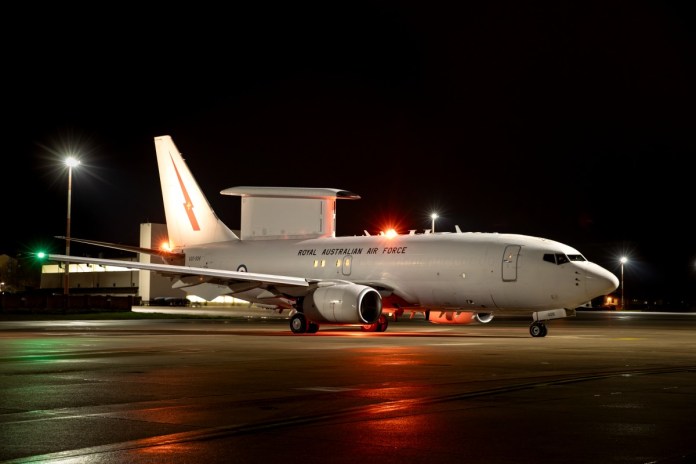LONDON and WASHINGTON - Just before the Pentagon unveiled
a new military strategy that emphasizes a shift in focus toward the Asia-Pacific region, Britain's Defense Secretary Phillip Hammond urged the U.S. government to maintain the strength of its commitment to the NATO alliance.
Speaking Jan. 5 in Washington on his first visit to the United States since taking over for Liam Fox in October, Hammond said that "however pressing the growing importance of the Asia-Pacific region is to the United States, the alliance between the U.S. and the countries of Europe is, and will remain, of vital interest to both continents."
Hammond said the growth in power and influence of other regions is a reason to strengthen the NATO alliance rather than weaken it.
The speech to an audience at the Atlantic Council, an organization formed to promote trans-Atlantic cooperation, was delivered right before U.S. President Barack Obama took the stage in the Pentagon briefing room to announce a new strategy that envisions a smaller military with resources increasingly devoted to the Pacific.
The eight-page strategy document says the United States remains committed to "bolstering the strength and vitality of NATO," but it also acknowledges that the strategic landscape in Europe has changed since NATO was first created and therefore the U.S. military posture must also evolve.
"Most European countries are now producers of security rather than consumers of it," the document says. "Combined with the drawdown in Iraq and Afghanistan, this has created a strategic opportunity to rebalance the U.S. military investment in Europe, moving from a focus on current conflicts toward a focus on future capabilities."
Hammond said he planned to meet with his U.S. counterpart, Leon Panetta, later that afternoon to discuss the new defense posture and the impact of the U.S. military spending cuts on trans-Atlantic relations.
The strategy did not say how many U.S. troops could leave Europe, but some reports indicate 4,000 more may withdraw.
"Of course reductions in U.S. troop numbers are not going to be welcomed by European allies, but I think we all understand the budget pressure the United States, like all of us, is under," Hammond said.
NATO members also recognize the world is changing and that the United States may have to shift its strategic focus, he said.
"I think Europe needs to respond in a mature way, not in a histrionic way," he said.
The release of the strategy document did not include new programmatic details, including any information on potential changes to the F-35 Joint Strike Fighter, the Pentagon's largest and most expensive weapon program. The United Kingdom plans to buy the naval variant of the aircraft.
Hammond said he is particularly concerned with what a delay to the program's schedule or a reduction to the U.S. buy could do to the aircraft's unit cost and availability.
"We're already under some pressure from public opinion in the United Kingdom that we're going to have built and launched [aircraft] carriers some years before we have the aircraft to fly off them," he said.
His speech served to remind the United States of the importance of NATO as it makes its strategic transition toward Asia.
At the same time, Hammond wanted to address comments made by Panetta and former U.S. Defense Secretary Robert Gates, who have both been critical of the unbalanced resources some European countries provide NATO and its operations.
Although Afghanistan and Libya had shown what the alliance was capable of, the contributions of many alliance members fell short "in terms of capability, the balance of contributions and in terms of the will to deploy."
In June, Gates said NATO had become a two-tiered alliance with some members shouldering the costs and participating in combat missions, while others enjoy the benefits of NATO membership without footing the bill or participating in difficult operations.
Despite these shortcomings, Hammond said people need to be realistic.
"Without strong economies and stable public finances, it is impossible to build and sustain in the long term the military capability required to project power and maintain defense," he said. "That is why today the debt crisis should probably be regarded as the greatest strategic threat to our nations."
With defense budgets continuing to be cut by NATO members, he warned the situation would get worse before it got better.
"Across the alliance, aggregate defense expenditure is certain to fall in the short term and, at best, recover slowly in the medium term," Hammond said.
Part of the answer to NATO's capability woes in a time of austerity lies in a series of capacity enhancing measures. He recommended a thorough assessment of NATO's capabilities and then stacking these against its current ambitions.
Such an analysis would provide the basis for choices regarding "greater pooling and sharing of capabilities; mission, role and geographic specialization; greater sharing of technology; cooperation on logistics; alignment of research-and-development programs, and more collaborative training."
The strategy document released by the Pentagon hinted at a similar approach.
"In this resource-constrained era, we will also work with NATO allies to develop a 'Smart Defense' approach to pool, share, and specialize capabilities as needed to meet 21st century challenges," it says.
Without more money, Hammond said the challenge was to maximize existing NATO capability.
"Prioritizing ruthlessly, specializing aggressively and collaborating unsentimentally. ... With budgets so tight, allies need to revisit approaches and ideas that might previously have seemed politically unacceptable," said Hammond.
Hammond also argued for greater cooperation with allies outside of NATO, naming Sweden, Australia, Qatar, the United Arab Emirates, Japan and South Korea.
However, he said he is opposed to growing the alliance and rejected the idea that the European Union should be a member.
